Is your family drowning in stuff? We’ve all been there when our closets have been full, drawers were overflowing, and our garages hadn’t seen a car parked in there in years. Where did all of this stuff come from and how do you get rid of it? While it does take some time, it is doable, and there are lots of nearby places to donate used toys, clothes and kid gear that are taking up much-needed space at your place. Here’s what you need to know.
Where to Start
If you already know what items need to go, you’re off to a great start. If not, it’s recommend that you go from room to room with three boxes or containers marked: “To Keep”, “To Throw Away” and “To Donate.” Tackle those piles by putting items in the appropriate box. You might need to make some tough decisions on what not to keep, but experts suggest that if you haven’t used it in over a year, it’s time to toss it.
Where to Donate
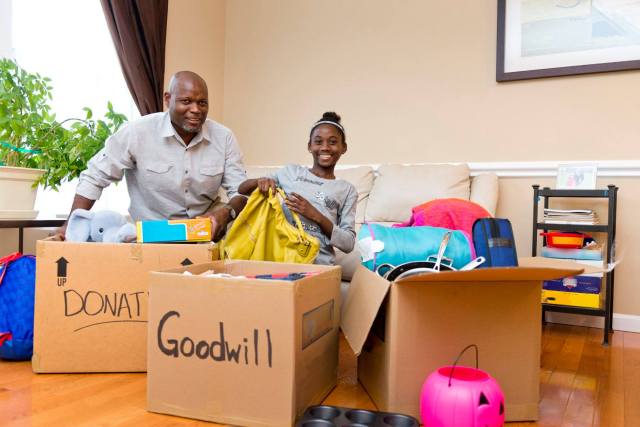
Goodwill
Seattle Goodwill provides job training and education to help individuals overcome barriers to employment. They offer 30 donation centers making it really easy for families bringing in pre-sorted used goods. If you'd like to give new life to toys, clothes and other small items, this is the spot to do it. The process is pretty quick during the week, but you might experience a longer wait time during the weekend, so plan accordingly.
What used items to donate: Right now, Goodwill is taking clothing, accessories, shoes, toys, sporting goods, books (and other media), household appliances and items. Most locations are accepting furniture donations, but not all, so be sure to check the list before you go.
Find a nearby donation center here.
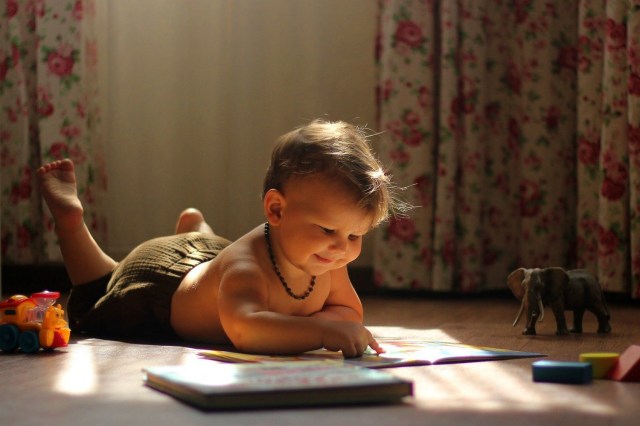
Westside Baby
Did you know food stamps don't cover diapers? Westside Baby provides diapers, clothing and other critical items to children and families throughout King County. In 2021, Westside Baby saw record-high need. They responded by distributing 2.5 million diapers, 1,600 car seats and over 2,000 bags of clothes. Consider helping out a new baby by adding a box of new diapers and wipes to your donation. Westside Baby has two drop-off locations that you can schedule a donation online. Drop-off locations are at South Lake Union on Mondays and White Center on Wednesdays, both from 10 a.m.-2 p.m.
What used items to donate: Diapers, wipes, hygiene items (baby wash/shampoo, etc.), infant bathtubs, potty chairs, bouncy seats, winter clothing (especially 0-6 months), books, toys, shoes, bottles, baby-wearing carriers and diaper bags.
What NEW items to donate: Socks, underwear and formula (especially Similac).
Note: Westside Baby will not accept expired car seats and are not collecting furniture, changing tables, "exersaucers" or baby swings.
10002 14th Ave. S.W.
Seattle, WA 98146
206-767-1662
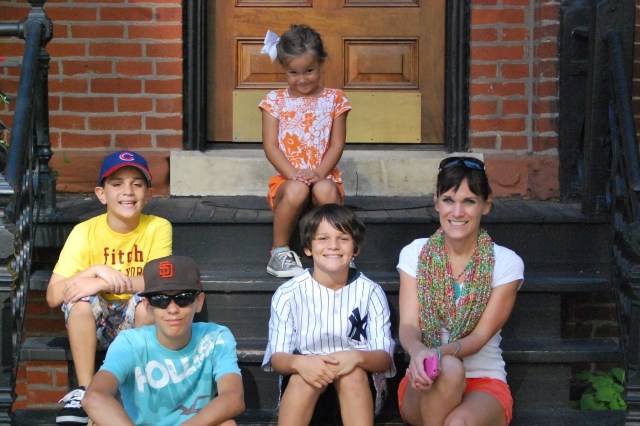
Habitat for Humanity ReStores
Simply put, Habitat for Humanity helps low-income families build their own homes and restore dignity. Their Habitat ReStores are home improvement stores that accept small and large donations of new or gently used furniture, appliances, housewares, building materials and more. Proceeds from the sales of these items help Habitat’s work in your community and around the world. Habitat ReStore staff and volunteers make the donation process as simple as possible. You can always donate goods in person, and many Habitat ReStores offer free pickup of large items. There is one very large ReStore in Tukwila near Southcenter.
Seattle-King County ReStore
1185 Andover Park W.
Tukwila, WA 98188
888-507-7078
Find a nearby donation center here.
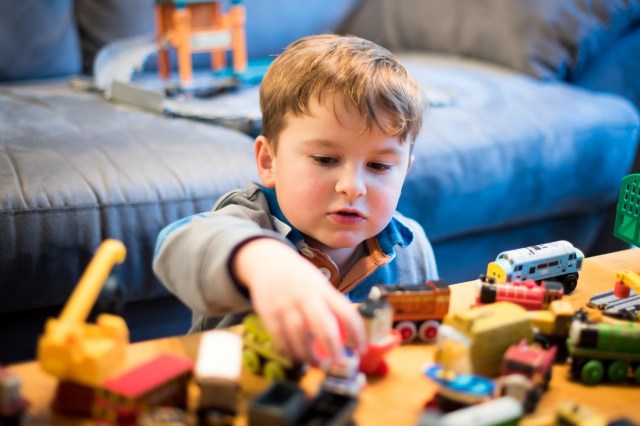
St. Vincent de Paul
With thrift stores similar to the Goodwill, St. Vincent de Paul also serves the community by running a food bank, programs for Veterans, basic health assessments, language and social services to the Hispanic community in King County and a case management program and call center to help individuals access social services. The charity is currently accepting donations at the Georgetown Kent, Kenmore, Burien, and Renton locations. Donations can be given Tuesday through Saturday from 10 a.m.-3 p.m. (However, the Georgetown location does not accept donations on Saturdays). Make sure your items are in sellable condition—no rips, tears, stains or big scratches. When you arrive, you'll be asked to place your donation in wire-framed boxes, and you can download an e-receipt online for donations over $250.
What used items to donate: They're currently accepting clothing, electronic items and household items. Everything needs to be in good working order. Hard surface furniture donations (tables, wooden chairs, desks, etc.) our being accepted at the Kent, Kenmore, Burien, and Renton locations only.
Find a donation center nearest you here.
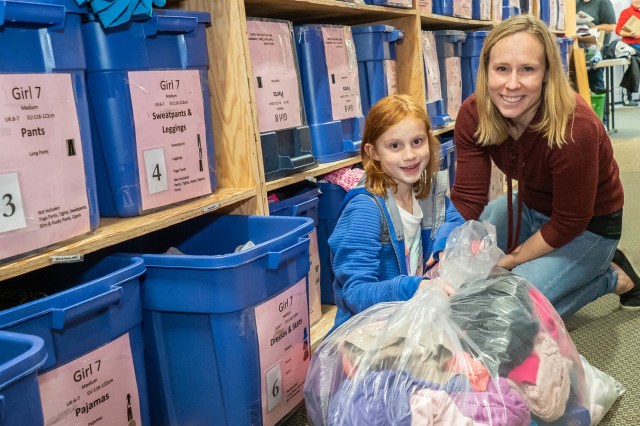
Eastside Baby Corner
Eastside Baby Corner provides direct assistance to local families challenged by job loss, homelessness, medical crisis and poverty. Each year they provide more than 8,000 clothing bags (each with a week's wardrobe) and more than 1,324 car seats to local families, keeping children safe and families comforted in their time of greatest need. Your donations won't gather dust here; items are matched to deserving families within a week of the item being requested.
What used items to donate: Clothing for children (birth through size 14), maternity clothing, baby gear, shoes, bottles, toys, diapers (new or opened packages), school supplies and books, blankets, bedding, towels, bicycles, and more. Check their website for the complete list of items.
Most needed items: Boy’s clothing: size 12-14, children’s pants sizes 2T-14, shoes (boy’s size 7C – 1Y and girl’s size 8C – 1Y), umbrellas, baby monitors, safety gates, safety locks, pajamas, towels, bedding (especially queen sheets and comforters of all sizes) and infant fleece blanket sleepers size NB-9 mos.
Note: EBC does not accept walkers with wheels, used nipples or pacifiers or those made in China, crib bumpers, open food or formula packages, flat fabric slings, sleep wedge, oral medication, toys with magnets, teethers containing gel or liquid, or made with wood, amber, marble or silicone. Other Items not accepted include toys bigger than a school backpack, adult clothing (except for maternity), ski equipment, electric breast pumps, humidifier/vaporizers, furniture, large train tables and stuffed animals longer than 12 inches. When in doubt, give them a call.
1510 N.W. Maple St.
Issaquah, WA 98027
425-865-0234
View all drop times and locations here.
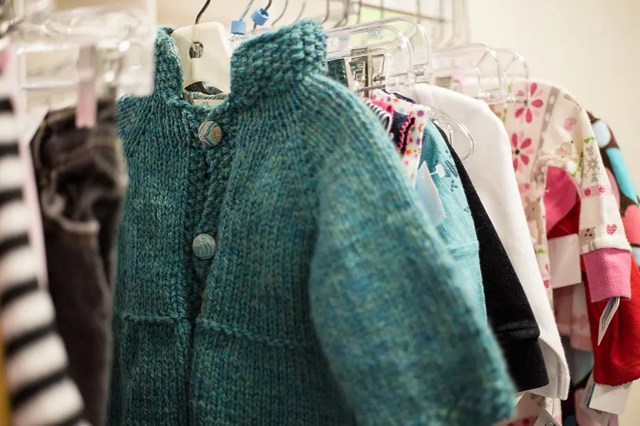
Treehouse
This standout organization's mission is to "give foster kids a childhood and a future." Among the myriad of services Treehouse provides to youth in the foster care system is an awesome warehouse filled to the brim with new and like-new clothing, shoes, toys, school supplies and books. This is where the kids can go "shopping" (everything is free) for what they want and need. This is a particularly great choice if along with your toy donation, you have a fashion-conscious tween (or toddler for that matter) who has outgrown their stylish brands.
What used items to donate: Infant/toddler, kids and young adult clothing, shoes and basic accessories, luggage, books, toys and games.
What NEW items to donate: Socks, underwear, bras, swimwear, blankets, stuffed animals, school supplies (including lunch boxes and backpacks), hygiene items (including diapers and baby wipes), bikes, scooters and skateboards. Other ways to donate can be found online.
Note: Treehouse will not accept items that are worn and/or out of date – such as: clothing in poor condition, toys and games that are missing pieces, luggage that has broken straps, zippers, or wheels; furniture, mattresses, play structures, used baby equipment (car seats, pack-n-plays, strollers, etc.), electronics (video games, phones, DVDs, CDs, etc.), household Items (appliances, kitchenware, decorations, wall decor, pillows, bedding (sheets and comforters), etc., breast pumps or breast pump accessories, food, beverages, or baby formula.
2100 24th Ave. S., Suite 200
Seattle, WA 98144
206-767-7000
Drop-off Hours: Tue. & Thu., 10 a.m.-3 p.m. or by appointment.

Northwest Center
The Northwest Center has created schools and bustling social enterprises which demonstrate the powerful benefit of people of all abilities working together. Your toys will be used in one of their awesome early learning programs where children with and without developmental disabilities learn and play together. With two dozen drop off locations, this organization makes donating super easy. Currently, the Northwest Center Big Blue Trucks aren't making rounds for donation pick-ups, but families can still drop off clothing only in the Big Blue Bins. Find one near you online. You can also donate to Northwest Center at any Value Village store.
What used items to donate: They're currently accepting clothing donations in a Big Blue Bin.
7272 W. Marginal Way S.
Seattle, WA 98108
206-285-9140
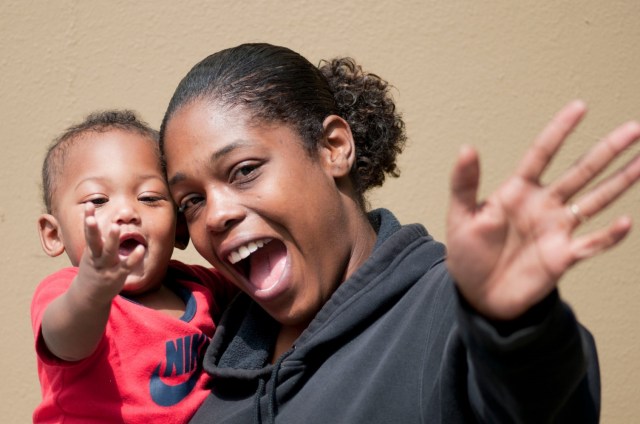
Mary's Place
This safe haven provides more than just the tangible needs of food and shelter for homeless women and their children; Mary's Place also provides a community and a safety net for women looking to rebuild their lives and who want their children to spend time in a safe and caring environment. They are always in need of used items and other items that are either new or are still in their packages. They have donation stations in SODO (Mon.-Sat., 8:30 a.m.-4 p.m.) and Seattle Regrade (Mon.-Fri., 9 a.m.-5 p.m. and Sat., 9 a.m.-1 p.m.).
What used items to donate: Children's books, backpacks, tote bags, fanny packs, small suitcases, bottles, sippy cups, in-season clothing for men, women and kids, raincoats, towels, utensils, small appliances (microwaves, crock pots, toasters, blenders), digital ear thermometers,
What NEW items to donate: Diapers (especially sizes 5 & 6), baby wipes, hand sanitizer, antibacterial hand wipes, individual tissue packets, alcohol wipes, cough drops, Pedialyte packets, pain relievers (Ibuprofen, aspirin), topical antibiotic ointments (like Neosporin or PolySporin), cough drops, hairbrushes, hair ties, body wash, ethnic hair care, lotion, Chapstick, razors, nail clippers, makeup, mouthwash, toothbrushes and toothpaste.
Items with a high need: Twin sheets, blankets, pillowcases, auto shop gift certificates, maternity clothes, new underwear (all sizes - men, women and children), stroller covers and towels. Check online for the complete, most up-to-date list.
113 Dexter Ave N.
Seattle, WA 98109
Donation hours: Mon.-Fri., 9 a.m.-3 p.m.
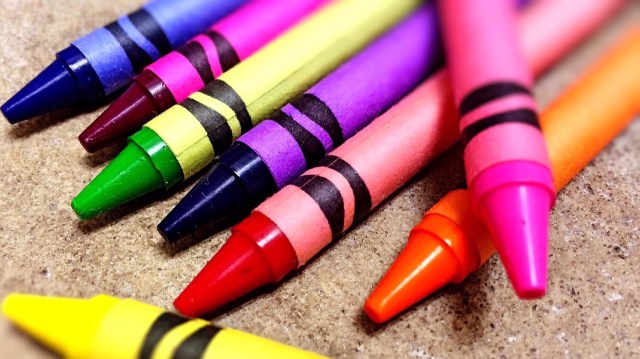
The Healing Center
As the only drop-in grief support center for youth (ages 4-18) in the area, The Healing Center fills an important gap in supporting kids who've experienced loss or trauma. The Healing Center also offers grief-support for adults, children and families as well as a day camp in the summer. The organization offers a unique, long-term, multi-faceted approach to grief support, combining group support with informal events and social networks.
Children’s programming supplies needed: Crayons, markers, colored pencil, coloring books, notebooks, board games, sketch book, Play-doh, model magic, beading supplies, watercolor supplies, washable kid's paint, construction paper, plain white paper and stickers.
Household supplies needed: Furniture (couches and chairs), lamps, side tables, office chairs and office desks.
Please contact donations@healingcenterseattle.org if you think you can help.
6409 1/2 Roosevelt Way N.E.
Seattle, WA 98115
206-523-1206
Online: healingcenterseattle.org
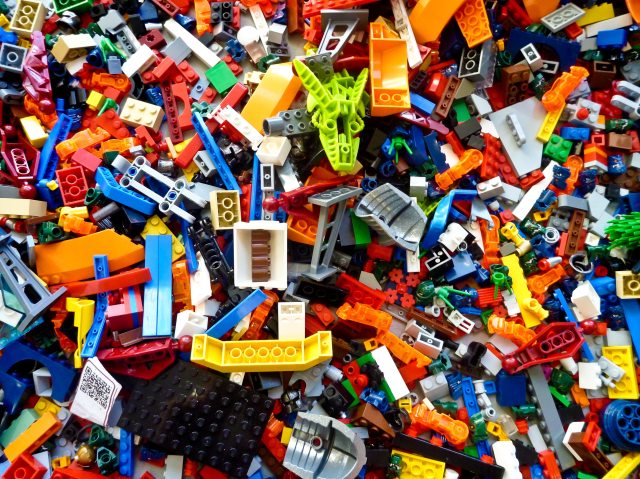
The Brick Recycler
If you have a LEGO lover in your life who's ready to release his or her (millions) of LEGO bricks and figurines, do not put them in your normal "donate box." Organizations like the Goodwill, Salvation Army, etc. will just throw them away if they're not in a complete set and if you try to recycle them, the city will sort them out and send them to the landfill. Give your LEGOs a new lease on life by sending them to the Brick Recycler. They will then send sets of LEGOs to schools in low-income areas, foster care programs, hospitals, and other organizations are also in need of LEGO sets but don’t have the money to buy them. You can ship them your mixed bag of LEGOs (for free if you ship via ground service including UPS Ground and FedEx Ground) and they'll sort and pass your bricks along to future builders. What a brick-tastic idea!
Address shipments to:
Brick Recycler c/o Guaranteed Express
652 N. King Rd.
San Jose, CA 95133
Online: brickrecycler.com
Before Donating, Please…
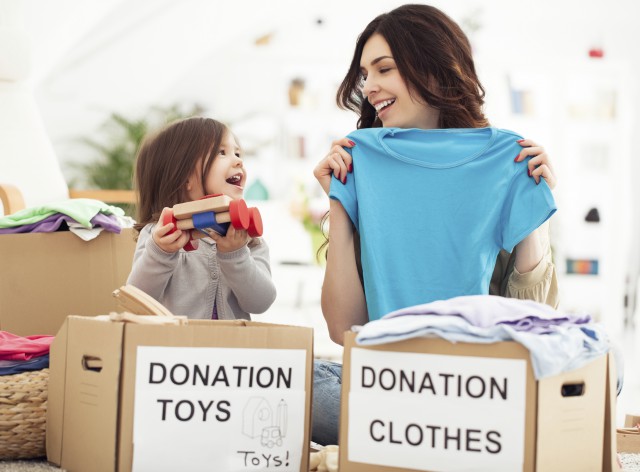
Before you start your post-nap time stealth purge of the toy bin or (gasp!) before enlisting the kids in selecting a few of their treasures to share with a child in need, here are a few tips for donating used toys:
1. Make your donations count by only offering items that are truly "gently used" and in good working order. Almost all organizations will throw away broken, stained or otherwise unusable toys, clothes or other donations, including toys missing any of their parts. St. Vincent de Paul estimates their annual garbage bill at over $60,000 because of unsellable items that include things like shirts with stains or broken zippers or puzzles with missing pieces. Hint: Local subscription service, Ridwell is a great place to threadcycle non-wearable clothing.
2. Don't donate toys or items that have been recalled. Those drop-side cribs are a no-no, even if it was a gorgeous family heirloom that all your kiddos slept safely in.
3. Put fresh batteries in automated toys. Or include a new pack of batteries with your donation.
4. Sort your donations. Though it isn't a requirement, it really helps the donation stations process donations when items are pre-sorted. For an example, place all clothing in one bag and shoes in another.
5. Double check on questionable items. Plush animals are frequently not accepted due to allergens. Big-ticket items like play furniture or outdoor play equipment may not be accepted as many organizations don't have room to store these biggies, so you might want to give your local organization a call before you haul it over there. (Don't stress! We have some options below for such cases.)
6. Don't forget to ask for a receipt. Most places will give you a tax deduction for your donation, so ask for a receipt!
—Jeffrey Totey, Kristina Moy & Katie Gruver
RELATED STORIES:
Easy Ways to Protect the Planet (Even More) in 2021
The Ultimate Guide to Cleaning Out Your Kids’ Room
12 Simple Ways to Teach Kids Gratitude
